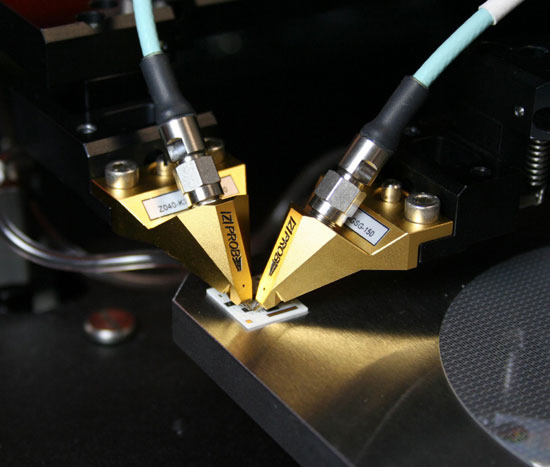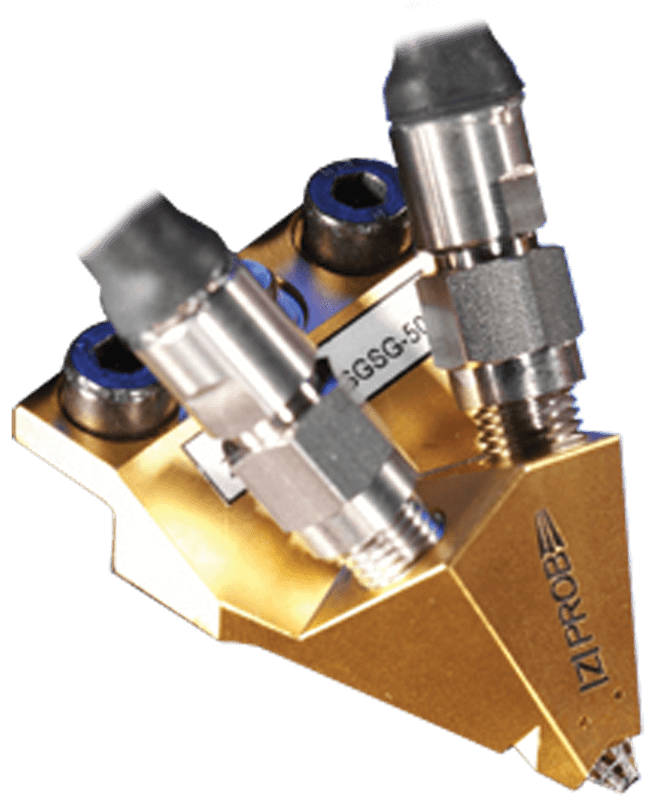|Z| Probe – Coaxial
Excellent performance - longest lifetime
Excellent performance - longest lifetime
Looking for customer support? Ready to learn more about our products and services?
Contact Sales TodayReceive product updates and event notifications
Subscribe to Our Newsletter


The |Z| Probe® patented technology assures high-accuracy measurements with low contact resistance and superior impedance control. The RF/Microwave signal makes only one transition to the coplanar contact structure within the shielded, air-isolated probe body, maintaining signal integrity at temperatures as low as 4 K, or as high as 300°C. This capability makes the |Z| probe suitable for the harshest test environments, from cryogenic test and measurement to characterize future computing ICs to high temperatures in closed systems for applications such as automotive devices.
Contacting the device under test (DUT) with the |Z| Probe is simple, highly repeatable and requires significantly less overtravel than alternative RF wafer probes. This is due to the robust design of the coplanar contact structure and the elimination of micro-coax cable. Additionally, the contacts can move independently of one another, which allows you to probe on three-dimensional structures and on wafers with pad-height deviation of up to 50 µm.
For differential, cryogenic, multi-port and mixed-signal applications, the Dual |Z| Probe and Multi |Z| Probe are available.
The new 1MXTM Technology is an enhancement to the |Z| Probe family of RF and microwave wafer probes. It is based on a significant miniaturization of the CPW (coplanar waveguide) structure which leads to a higher bandwidth capability and better electrical performance by keeping in parallel the unique |Z| Probe advantages like robustness, contact quality, and repeatability.
Receive product updates and event notifications
Subscribe to Our Newsletter